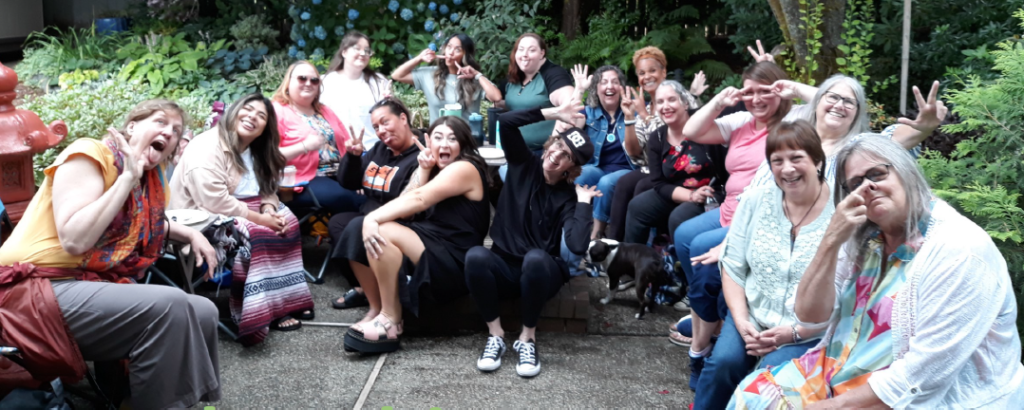Giving Thanks to Recognize our Early Achievers Program

There is no better time than November to reflect and be thankful for our staff and the opportunities we have to positively impact young children and the adults who care for them
One program we at Child Care Action Council (CCAC) are proud of is our Early Achiever’s (EA) Program. Early Achievers is Washington State’s Quality Rating and Improvement System and has been in existence since 2012. Participation is required for child care sites that serve families enrolled in state subsidy. Through EA, licensed child care providers can access a variety of services and resources to improve the quality of their programs: coaching, mental health consultation, ECE (Early Childhood Education) scholarships, various grant opportunities, and quality improvement award dollars. Working side by side with a coach, providers chart their own course towards improvement growth, following a set framework of components and culminating in a request to be recognized and rated for these efforts.
There are six Early Achievers regions across Washington State. CCAC represents and supports the Olympic Peninsula region: Thurston, Mason, Grays Harbor, Kitsap, Clallam, and Jefferson Counties. We are one of the smaller regions with a team of 17 staff who support family home providers and centers in areas from tech and grant assistance to guidance in challenging behaviors, classroom set up, curriculum, assessment and leadership and business consultation.
Our EA Regional Coordinator, Kristin Gomez, explains how EA is always evolving to better meet the needs of providers, children, and families. We try to walk the talk of “continuous quality improve-ment”. In 2020, the WA Dept. of Children, Youth, and Children (DCYF) worked with stakeholders and partners to guide a major revision to the EA system. Some of the main goals were to establish a more provider driven, equitable, and user-friendly implementation process.
She is glad to report that much of the feedback she received has been positive regarding the new recognition system. The previous process involved a one to three day in-person observation and documentation check by the University of Washington. The current process has three components that are virtual only, the third being optional for providers wanting to rate higher than a Level 3:
- Program Profile: a facilitated self-assessment that gathers data from leadership, family and staff to identify strengths and areas of growth;
- Video Highlights: providers choose activities to video and submit that highlight their program’s interactions and environment;
- Records Review (optional): providers opt into additional quality standards and submit documen-tation on them.
A few years ago we received funding to add mental health consultation to the supports we can pro-vide EA sites. We currently have two staff who work with referred providers to overcome behavioral health related issues at their sites. Mental health support is a greatly needed service and we are glad to have consultants in the field doing this work in collaboration with coaches.
We are fortunate to have many veteran coaches and leads who have been here six plus years! These include Nattie Diaz, Lee Ann Bryant, Yvette Hernandez, Heidi Scott, Emily Long, Jessica Beckett, and Tracy Mitchell.
We asked Gomez how this work is impacting the future of the child care workforce and the children in their care.
“People who care about children are drawn to this work, but it takes more than a caring heart to make a difference. It takes deep relationship building, extensive professional development, peer collaboration and hard work to inspire change in the providers and make meaningful impacts to the children we serve through EA. Change and impact can show up as simply as a teacher doing more ‘process’ art vs ‘product’ art with children. It can also be as complex as working with a provider on acknowledging that negative bias towards certain children exists in her child care space. From small concrete impacts to transformational changes our team works hard to make a positive difference for providers and children.”
Kristin Gomez, Early Achievers Regional Coordinator
We are also part of a greater statewide advocacy effort, led by Child Care Aware (CCA) of WA, that is currently focused on creating better conditions such as compensation and benefits for the child care workforce. It is exciting to see the progress that has been made since EA first launched in 2012 but, as Gomez reminds us, more work lies ahead!

Subscribe to our newsletter HERE